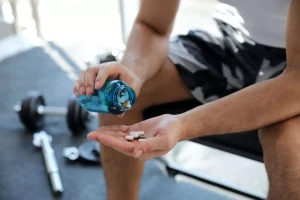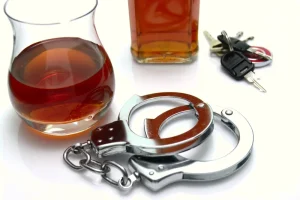
You’ll start feeling the effects of a hangover hours after you stop drinking. Symptoms of a hangover can be mild or serious, depending on how much and what you drank. You’ll feel the worst as your blood alcohol level goes back to normal. Hangover symptoms can linger for a day or sometimes longer.
How much alcohol can you drink without risking a hangover?
However, if you are going to drink, limiting the number of drinks you have decreases the chance you will experience a hangover. In addition, decreasing the number of drinks decreases the severity of the hangover if one is experienced. In addition, symptom management can help alleviate how long can a hang over last the specific symptoms of a hangover. For example, if one is experiencing light sensitivity, then it may be helpful to wear sunglasses or stay away from lights. If one is experiencing dizziness, then it may be helpful to drink water and lay down or sit still for some time.
What are the common symptoms of hangover?

If you have woken up this AM with the distinct feeling that your nausea, headache and general off-kilter vibe have stuck around long after your last tequila shot, know that you’re not alone. The 2-day hangover, as any one over the age of 30 will tell you, is real. Food will help restore your blood sugar and can help you feel better. Eat crackers, toast, or other bland, carb-rich foods that are easy on your stomach. Researchers say Korean pears might work with your body’s chemistry to break down alcohol faster.
- A big glass of water might be the easiest hangover solution.
- A hangover begins when a person’s blood alcohol level begins to drop.
- Hangover anxiety, or ‘hangxiety,’ is alcohol-induced anxiety, typically felt the morning after the night before.
Guide to a Hangover
Moreover, many people forget to eat when they drink, further lowering their blood sugar. Toast and juice is a way to gently nudge levels back to normal. Other things you do — or don’t do — when you drink alcohol can affect whether you get a hangover and how bad it is.
Can a hangover last 2 days?

But the only guaranteed way to prevent a hangover is to not drink alcohol. Congeners are more likely to produce a hangover or make a hangover worse. But drinking too much alcohol of any color can still make you feel bad the next morning. One of the easiest and most effective ways to treat a hangover is to hydrate with water or an electrolyte drink. For best results, you will want to hydrate before you start drinking, while you’re drinking and afterwards.

What are the risks of drinking too much?

The phrase “cool as a cucumber” was coined because the interior of a cucumber can be up to 20 degrees cooler than the exterior. Get helpful tips and guidance for everything from fighting inflammation to finding the best diets for weight loss…from exercises to build a stronger core to advice on treating cataracts. PLUS, the latest https://ecosoberhouse.com/ news on medical advances and breakthroughs from Harvard Medical School experts. No content on this site, regardless of date, should ever be used as a substitute for direct medical advice from your doctor or other qualified clinician. It may last longer or shorter, depending on your unique biology and how much you’ve had to drink.
- In addition to getting some rest, you can drink fluids, eat in moderation, and take over-the-counter (OTC) medications.
- But your body generally eliminates all the alcohol from your system after five to six hours, yet still remains adjusted to the presence of alcohol.
- The Food and Drug Administration (FDA) warned companies against claiming their supplements cure or prevent hangovers — without FDA approval, it’s illegal to do so.
What Is a Hangover?
The most important thing to consume while you are recovering from a hangover is liquid, in order to avoid further dehydration. Any liquid (except alcohol!) that you find palatable is acceptable, such as boullion, chicken soup, sports drinks, or water. Fruit juices can also help to boost your blood sugar. Some people have a headache a few hours after drinking wine — especially red wine. But it’s different from a hangover, which may or may not include a headache.
Are There Any Remedies for a Hangover?
- While there are differences in how people experience hangovers, these differences are not understood and are not related to resilience or alcohol tolerance.
- Her freelance writing has been featured in Women’s Health, Runner’s World, PEOPLE, and more.
- If you’re vomiting frequently, it’s important to be mindful of dehydration symptoms, like dark-colored urine, decreased urination, and fatigue.
- The researchers concluded that 25% to 30% of people who drink may be resistant to hangovers.
- A person must wait for the body to finish clearing the toxic byproducts of alcohol metabolism, to rehydrate, to heal irritated tissue, and to restore immune and brain activity to normal.
- While congener content may affect hangover severity, it has never been demonstrated in a study that mixing drink types leads to a worse hangover, even though this is a popular belief.
There is no cure for a hangover, but there are some treatment strategies. Waiting is typically the most common way of dealing with hangovers because they tend to resolve on their own. However, you may not want to sleep all day and have other obligations like work or school. In some instances, symptoms of a hangover can begin before the effects of alcohol have worn off.

In most people, the body breaks down acetaldehyde before it causes problems. But it can cause inflammation in organs, leading to uncomfortable symptoms. You’re also more likely to have memory, concentration and coordination issues when you have a hangover. In general, the severity of your symptoms depends on how much you drank and for how long. In the study, participants using red ginseng had lower concentrations of ethanol and increased acetaldehyde levels compared with placebo. This suggests that the red ginseng increased the speed of ethanol’s conversion to acetaldehyde.